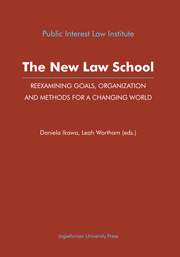Chapter 2 - Faculty Management: A Matter of Balance
from Part Two - Law School Governance
Published online by Cambridge University Press: 05 September 2014
Summary
Introduction
This chapter analyzes tensions surrounding three core dimensions of faculty organization and management: external academic freedom, internal academic freedom, and who participates in decision-making. The chapter considers some common assumptions about these concepts that are dominant in the Dutch academic community, and Western universities more generally, and addresses competing considerations that the author believes must be balanced against the traditional assumptions.
External academic freedom refers to the relationship of the university and the faculty to their surrounding environment. Here the core notion is “independence” or “external academic freedom.” But is external academic freedom absolute? What about accountability? What about social responsibility? What about “the market”?
The second set of assumptions looks at the relationship between the content of education and research on one side and university and faculty organization and management on the other side. The core notion here is “internal academic freedom.”
The third set of assumptions is about the day-to-day functioning of universities and faculties, and the way in which decisions are made, especially the involvement and participation of the stakeholders in those processes.
External academic freedom
In the Magna Carta of European Universities, signed in Bologna on September 18, 1988, by the rectors of (European) universities, four fundamental principles are formulated:
A. The university is an autonomous institution at the heart of societies differently organized because of geography and historical heritage; it produces, examines, appraises, and hands down culture by research and teaching.
- Type
- Chapter
- Information
- The New Law SchoolReexamining Goals, Organization and Methods for a Changing World, pp. 35 - 44Publisher: Jagiellonian University PressPrint publication year: 2010



